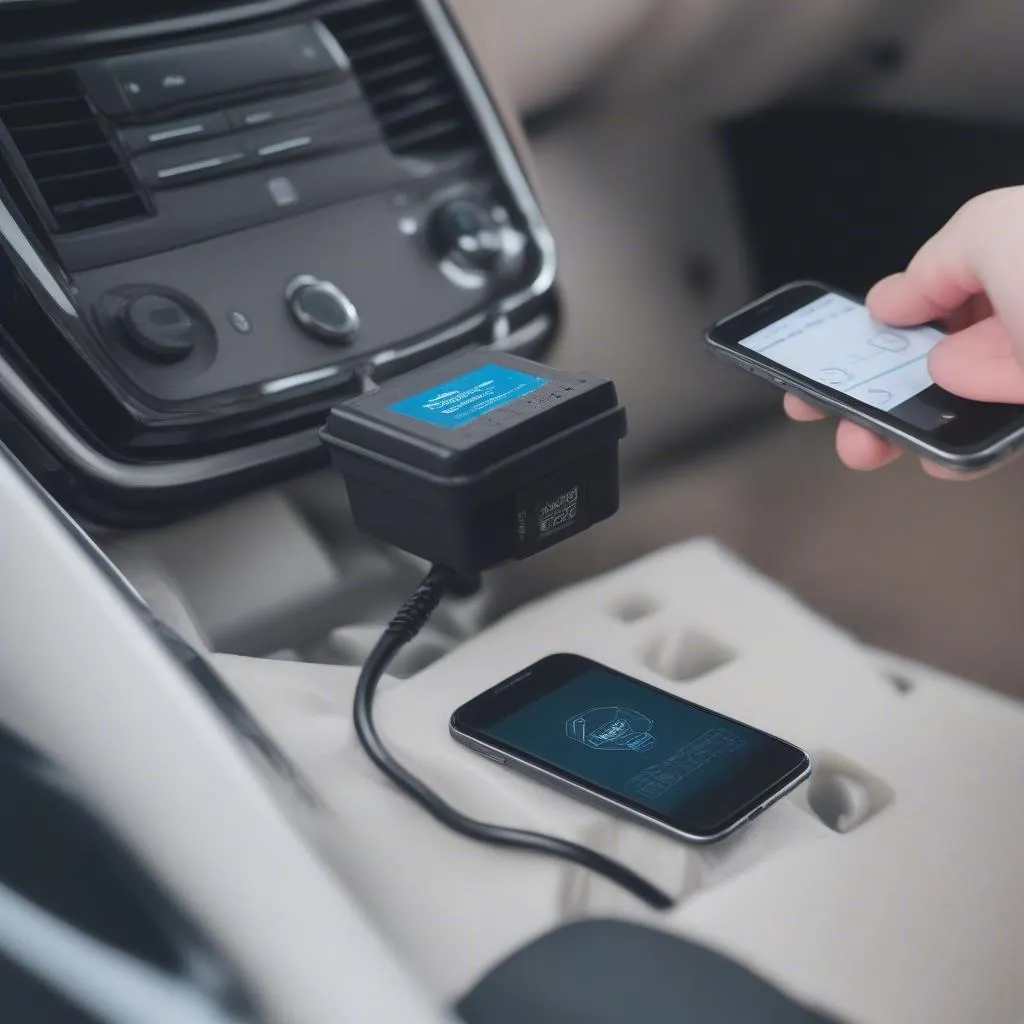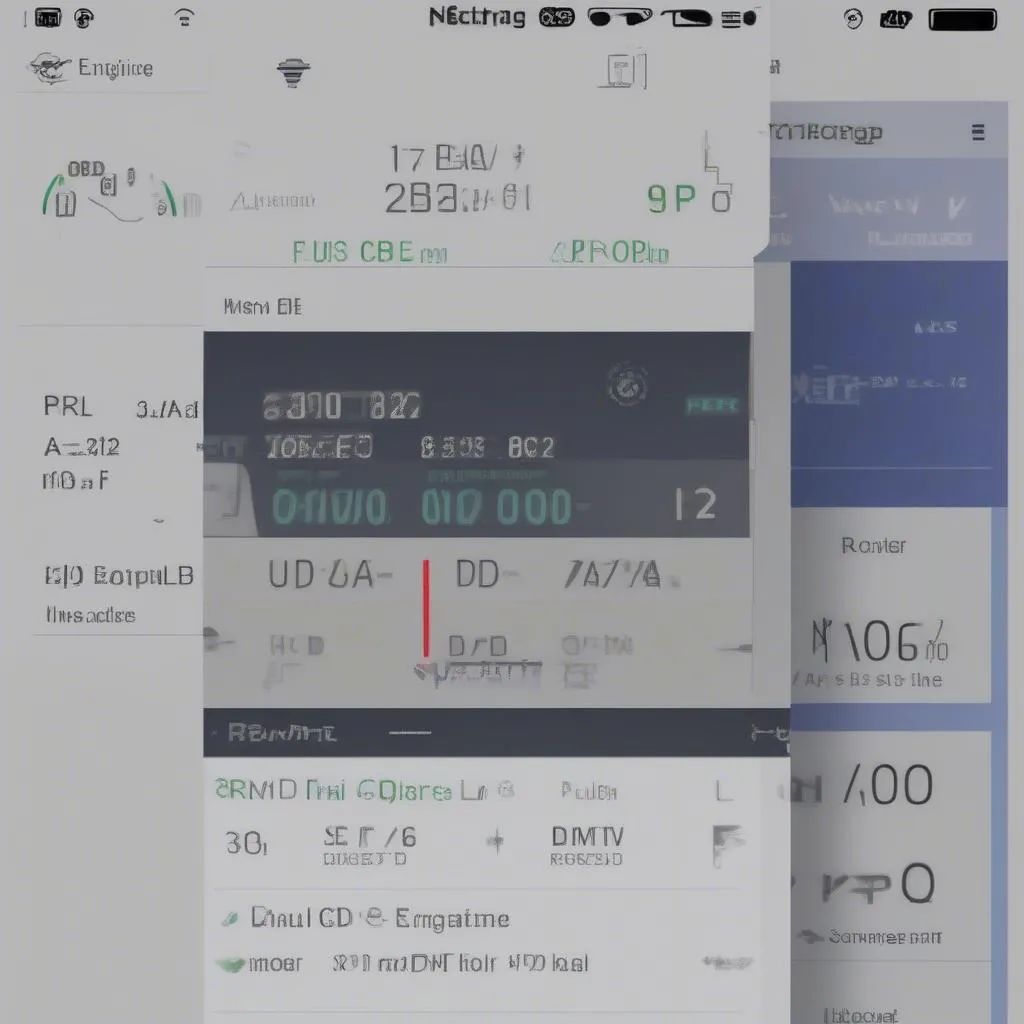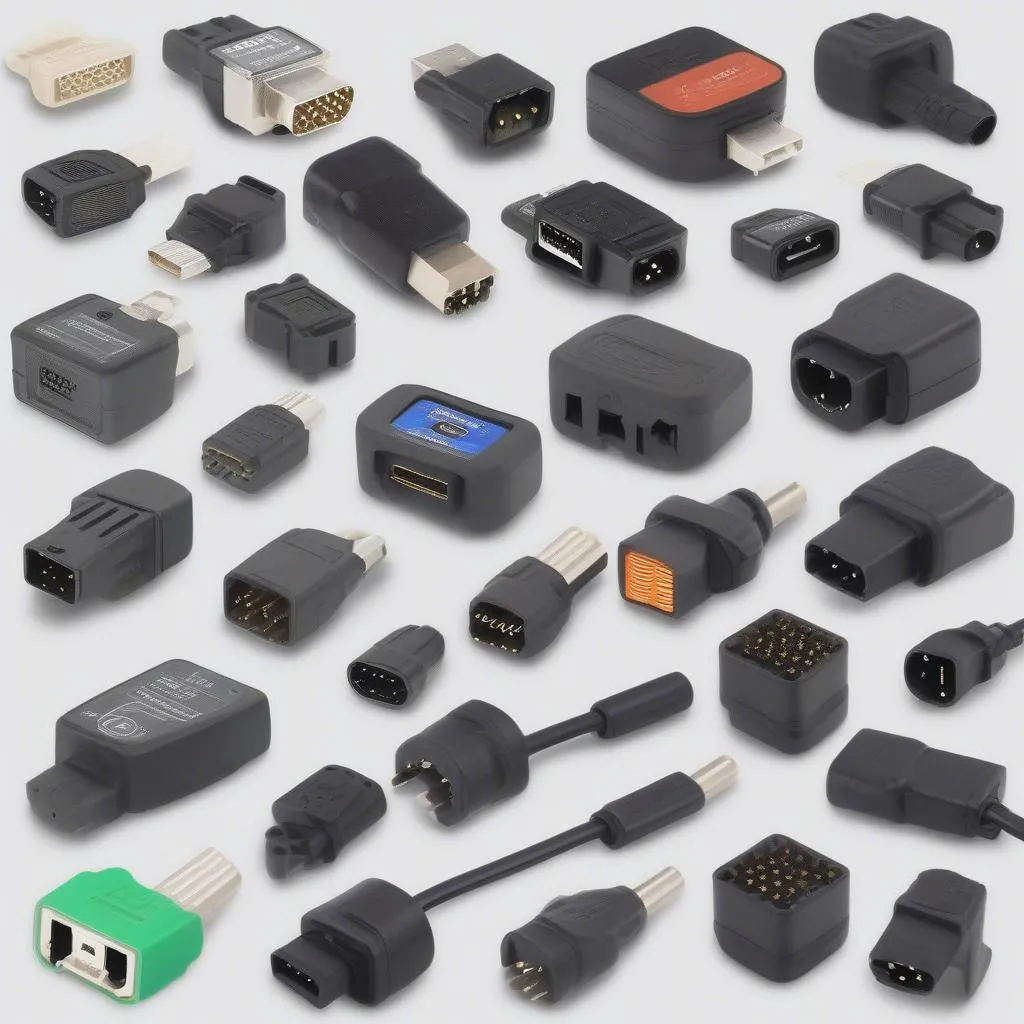Have you ever wondered what’s happening under the hood of your car? You’re not alone. Every car owner has experienced a moment of uncertainty, wondering about a strange noise or a flickering light on the dashboard. That’s where OBD adapters come in. These small, yet powerful devices, bridge the gap between your car and the world of diagnostics, offering you valuable insights into your vehicle’s health.
What Are OBD Adapters?
OBD, which stands for On-Board Diagnostics, is a standardized system built into all cars manufactured after 1996 (in the U.S.) and 2001 (in Europe). Think of it as a “black box” that stores a wealth of information about your car’s performance. OBD adapters act as the key to unlocking this information, allowing you to access and analyze diagnostic data.
How OBD Adapters Work
These adapters connect to your car’s OBD-II port, typically located under the dashboard. They then communicate with your car’s onboard computer, transmitting data to your smartphone, laptop, or tablet via Bluetooth or Wi-Fi. This data includes a range of critical information, such as:
- Engine performance: Fuel consumption, engine speed, and emissions levels.
- Transmission and drivetrain: Gear shifting, wheel speed, and traction control data.
- Safety systems: Airbag status, ABS operation, and seatbelt usage.
- Electrical systems: Battery voltage, charging status, and sensor readings.
Why Use an OBD Adapter?
OBD adapters offer a range of benefits for both everyday drivers and seasoned car enthusiasts:
- Early problem detection: By monitoring diagnostic data, you can identify potential issues before they escalate into major repairs.
- Cost savings: Early diagnosis can help prevent costly breakdowns and ensure you don’t get ripped off by shady mechanics.
- Enhanced performance: Some OBD adapters offer features that can boost your car’s performance, such as optimizing fuel economy or increasing horsepower.
- Increased knowledge: OBD adapters empower you to understand your car’s inner workings, giving you greater control over its maintenance and performance.
Choosing the Right OBD Adapter
The market is flooded with various OBD adapters, each with its unique features and capabilities. When choosing an adapter, consider the following factors:
- Compatibility: Ensure the adapter is compatible with your car’s make, model, and year. Most adapters are compatible with OBD-II vehicles, but older models may require a specific adapter.
- Connectivity: Choose an adapter that connects via Bluetooth or Wi-Fi, depending on your preferred method of data transfer.
- Functionality: Look for adapters that offer the features you need, such as live data monitoring, fault code reading, and data logging.
- App support: Consider the mobile app that comes with the adapter. A user-friendly and comprehensive app enhances the overall user experience.
Real-Life Scenarios Using OBD Adapters
Imagine you’re driving down the highway when you notice a strange noise coming from your engine. You pull over, worried about a potential problem. With an OBD adapter, you can connect your phone to your car and quickly check the engine fault codes. You might find that a sensor is malfunctioning, which is an easy fix.
Or maybe you’re planning a road trip and want to monitor your car’s fuel consumption. An OBD adapter can help you optimize your driving habits to maximize fuel efficiency and save money on gas.
FAQs About OBD Adapters
Q: Are OBD adapters legal?
A: Yes, OBD adapters are legal and are often used by professionals for vehicle diagnostics.
Q: Can OBD adapters reset check engine lights?
A: Some OBD adapters allow you to clear check engine lights, but it’s important to understand the underlying cause of the issue before simply resetting the light. Consult a mechanic for a proper diagnosis if you’re unsure.
Q: Can OBD adapters improve my car’s performance?
A: Some adapters offer features that can optimize fuel economy or boost performance. However, the actual performance improvements vary depending on the car and the specific features of the adapter.
Q: Are OBD adapters compatible with all cars?
A: Most adapters are compatible with OBD-II vehicles, which are cars manufactured after 1996 in the U.S. and 2001 in Europe. However, older cars may require a specific adapter.
Conclusion
OBD adapters are valuable tools for anyone who wants to gain deeper insights into their car’s health and performance. They provide a convenient and affordable way to monitor your vehicle’s diagnostics, identify potential problems early, and improve your overall driving experience.
If you’re looking for a reliable and affordable way to stay on top of your car’s maintenance, consider investing in an OBD adapter. You’ll be surprised at the wealth of information it can unlock!
 obd-adapter-connected
obd-adapter-connected
 obd-adapter-app
obd-adapter-app
 obd-adapter-types
obd-adapter-types
Need Help with your Diagnostics Tool? Our team of automotive experts is available 24/7 to help you set up and use your OBD adapters. Contact us via Whatsapp: +84767531508 for immediate support!